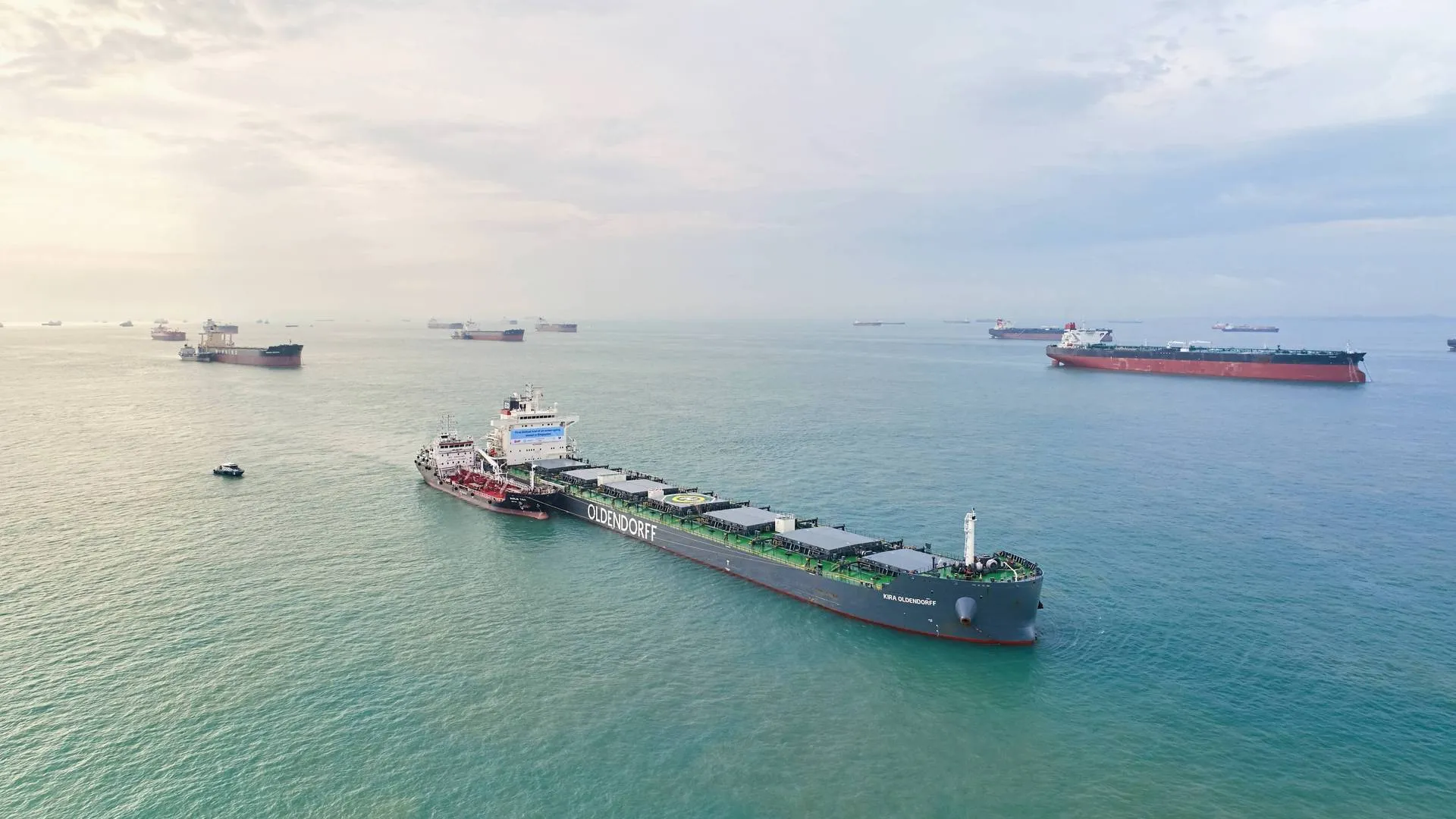The product was formulated by Petrobras Singapore (PSPL) itself in its locally leased tanks, by blending 76% fossil fuel oil from the refineries of the Petrobras System and 24% UCOME, a biofuel originating from the processing of used cooking oil (UCO), purchased in the region.
Petrobras Singapore has the ISCC EU certification, which guarantees that its product meets the strict sustainability criteria, a requirement that accompanies the entire biofuel logistics chain involved in this process.
The biobunker test continues the strategic partnership between Vale and Petrobras, which provides for the supply of products focused on competitiveness and the advancement of the decarbonisation agenda.
“We are developing increasingly sustainable fuels and honoring our commitment to decarbonise our activities. The partnership with Vale is another achievement of Petrobras’ goal of improving the company’s production capacity and logistics structure, to deliver greener products to the market and reinforce our decarbonisation strategy”, says Petrobras president Magda Chambriard.
“Vale has a firm commitment to promote the decarbonisation of its operations. In this context, our shipping area has evaluated several scenarios to reduce GHG emissions in maritime transport, which includes the development of multi-fuel solutions for new and existing ships that transport our products globally. Petrobras is a very important partner in this process,” says Vale’s CEO, Gustavo Pimenta.
The tests with alternative fuels on ships chartered by Vale are part of a series of initiatives by the mining company to foster and support decarbonisation in global maritime transport, in line with the International Maritime Organisation (IMO) emission reduction targets. Vale has a goal of reducing its scope 1 and 2 emissions by 33% by 2030. The company has also committed to a 15% reduction in scope 3 emissions by 2035, related to the value chain, of which most emissions from shipping are part.
For Petrobras, the commercialisation of the bunker with renewable content is in line with the strategy of developing and offering new products, towards a low-carbon market, and innovating to generate value for the business, enabling solutions in new energies and decarbonisation. Petrobras 2025-2029 Business Plan foresees an investment of US$ 16.3 billion in energy transition initiatives, encompassing, in addition to Low Carbon Energy projects, projects for the decarbonisation of operations and Research and Development (R&D) that permeates all segments. This volume represents 15% of the total CAPEX forecast for the five-year period (against 11% on the previous plan) and an increase of 42% compared to the previous plan.






